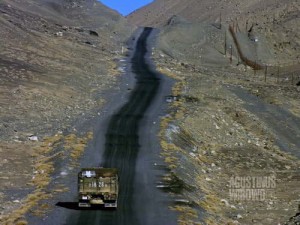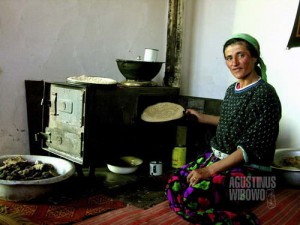Karakul – Out of Murghab
A new day, and a new month, starts in Murghab The new month has just started, and I have only 4 days left on my visa. I met these two guys in the bazaar of Murghab, one with visa expiring today (November 1). The guys were from America and Israel, and they have been waiting for onward travel to Kyrgyzstan. They were there in the bazaar yesterday but failed to depart. Today is the second day (and supposed to be the last day) attempt. Murghab is somehow a depressing place to wait for transport. As now the oil price has skyrocketed, one’s a month salary is only enough to cover the distance from Murghab to Osh or to Khorog in a public transport for one time. People don’t travel anywhere. There are many drivers but not passengers. The drivers hang around the bazaar the whole day to get passengers, and except the two travelers, and me, there is nobody else to share the cost. Some drivers even didn’t have petrol for their vehicles. The cost is always calculated in terms of liters of [read more]


